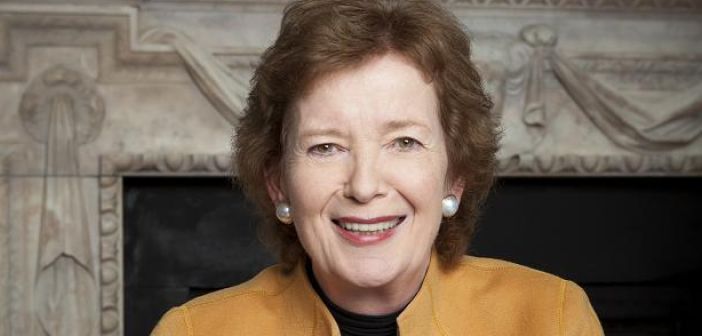Life Lessons on Sexism in Ireland
On Friday March 3rd the news that human remains had indeed been found at the mother and baby home in Tuam broke. The Citizens’ Assembly met that same weekend to debate the calls for a referendum to repeal the 8th Amendment. On Wednesday March 8th record numbers of Irish women and men held a strike and marched for reproductive justice for Irish women. Just over a week later Ireland and Irish people across the globe celebrated St. Patrick’s Day. A pretty hectic couple of weeks by all accounts.
The impact of these events even made it to Guatemala. Friends here asked me about the Tuam babies, I also marched for repeal on International Women’s Day and celebrated St. Patrick’s Day with the only Guatemalan woman I know who has Irish ancestry.
In the middle of all this I was reeling from the massacre of 43 girls when a fire broke out on the morning of March 8th in a Guatemalan children’s home. I became a regular at the protests and nightly vigils in Guatemala City’s main square. Questions of institutional violence and sexism and my relationship to my home country and Guatemala having been weighing heavily on my mind. In the outrage that has followed the Tuam babies scandal, the murder of Clodagh Hawe and her children, as well as the Repeal campaign, it is the first time in my life, that I can recall, where I have seen consistent and widespread questioning of Ireland’s long legacy of institutionalised sexism and violence.
Growing up with Sexism in Ireland
As a girl and now as a 32 year old woman I have always felt ambivalent about my home country. I am unmistakably Irish and yet I have never felt at home in Ireland. I have spent 7 out of the last 12 years abroad. My ambivalence is rooted in the subtle but pervasive sexism which marked my childhood and adolescence, and the iron grip the Catholic Church has maintained on the public and private life of Irish Citizens – a grip which has only recently given any signs of slipping.
As child of the mid-eighties, the Ireland I grew up in meant that not going to Sunday Mass was enough to feel like an outsider in your own village. This was not simply as a result of the judgement you could face from the community but also because it automatically excluded you from community life. Everything revolved around the church. My family was the only atheist family I knew. My parents had both rejected the church as teenagers and refused to have us engaged in Catholic life in Ireland beyond our baptisms. We were sent to a Protestant school, as the only alternative to Catholic schools in our region at the time; an option my parents considered the lesser of two evils.

My parents separated when I was seven. I didn’t want anyone to know, not even my best friends. I guess no child wants her parents to separate but I didn’t know any other family whose parents were. Even as a seven year old I was aware of the rarity of the event and the shame that a separation could inspire.
My Mum was a strong, independent woman who refused to bow to society’s expectations or do anything that went against her principals just because all the other mothers, wives, and women were doing it. I don’t remember ever hearing her call herself a feminist but her actions demonstrated a commitment to equality for women. She didn’t shave her legs or her armpits, she didn’t use make up or wear bras. At the age of ten I was completely horrified by her hippy tendencies, but of course, now that I’m 32 I do the same.[pullquote]Mary Robinson taught me a woman could be president, but also that a woman could have opinions, could speak openly about difficult issues and could defend human rights.[/pullquote]
She never ever made comments about my body, we never had women’s magazines in the house, and she tried her best to protect me from body shaming. She treated me exactly the same as my brothers, always sharing household chores equally between the three of us. Other girlfriends and cousins had to run around after their fathers and brothers cooking and cleaning. The separation was a huge blow, we all felt it, and not least because state support was minimal and my father did everything he could to evade his financial responsibilities to his family. My mother picked herself up, started working again and eventually went back to college where she was always top of her class.
My mother and Mary Robinson were my two reference points for what it meant to be a strong woman. I was probably a little too young for Sinéad O’Connor to have made an impact. Mary Robinson taught me a woman could be president, but also that a woman could have opinions, could speak openly about difficult issues and could defend human rights.
In school, however, I learned that girls are preferred when they don’t have strong opinions, they don’t cause a fuss and they don’t speak out about social injustice, least of all sexism. That didn’t stop me from doing all those things but it did mean that despite my good grades I was never the teacher’s pet, I was the butt of many jokes among other girls and was not popular with the boys. I had wonderful friends throughout secondary school but I learned that the ‘popular’ girls were the ones who listened to Britney Spears and wore a mini skirt to the local disco where they kissed as many boys a possible whether they actually liked them or not. I was a clumsy, awkward, die-hard Radiohead fan who was often too shy to talk to boys and otherwise not very willing to put up with their bullshit.

Despite all my teenage rebellion and my mother’s fine feminist example, most of the time I just wanted to fit in. I silenced myself, became less outspoken, shared my opinions less eagerly, kept my head down and focused on surviving the Leaving Cert. I reached a point of body hatred that manifested itself not in eating disorders or self-harm, but basically in a denial that I had a body. I dressed like a boy so that no one would notice the physical changes I was going through, especially not my growing breasts. I hid under hoodies and baggy jeans. I also shaved my head and switched from skirt to pants as soon as I could get away with it without getting sent home from school.
While my parents were always open and informative about sex and reproduction I realised that at 15 most of my friends did not actually really understand ‘where babies came from.’ I learned that it wasn’t acceptable to talk openly about sex, not even to my best friends. When it came to abortion it was probably best to keep your opinions to yourself, as saying you were pro-choice was the quickest way to lose friends.
At 18, finally able to go to clubs and pubs legally, I quickly learned that short skirts are an invitation, that you’re a slut if you say yes, a frigid if you say no, and a cock tease if you kiss a guy and then don’t take him home. I learned that men could grab your pussy and hump you in clubs without asking your permission.
Enough is enough
College came with new challenges. The fact I was once again outspoken and opinionated, rather than being attractive to men, was considered too intimidating. I learned that if you are blind drunk and you get raped, it’s your fault, that if you walk home alone and are attacked it is also your fault. I learned that rape is considered ‘the worst thing that will happen to you’ as a woman, but that it is also still your fault and that it’s likely no one will believe you. And the worst part is that even while calling myself a feminist I still judged other women for not ‘looking after themselves’ and ‘getting themselves into compromising situations.’
As for contraception, I quickly learned that it was a woman’s responsibility. It never occurred to me that I could ask my male partner to go halves on my monthly prescription of the pill. I learned that a trip to the STI clinic also means facing judgement from nurses and doctors, mostly your mother’s age, simply for being sexually active. Rather than being treated like a responsible adult for getting a yearly screening, these visits were often accompanied by lectures and admonishments.

I learned that if your contraception fails you are on your own. You will pay for the morning after pill or the pregnancy test yourself and will more than likely have to deal with the consequences of an unwanted pregnancy alone. I learned that Irish women’s only options in this case are to go through with the pregnancy, whatever the personal or financial cost. Or if you cannot afford the trip abroad you can order pills online and risk 14 years in prison. If you decide on the latter you best keep it to yourself because in Ireland no one wants to know you’re one of the 3,000 plus women a year who has an abortion.[pullquote]I learned that if your contraception fails you are on your own. You will pay for the morning after pill or the pregnancy test yourself and will more than likely have to deal with the consequences of an unwanted pregnancy alone[/pullquote]
At 28 Savita Halappanavar died in Galway University Hospital and I learned that as an Irish woman my only value lies in my possible reproductive capacity. That the beating heart of a 17 week old foetus will be given priority over my health and life. That I could be denied a routine but lifesaving obstetric procedure because of that beating heart. You may be a survivor of sexual assault, you may have cancer, your baby may have an illness so severe it will not survive pregnancy or life outside the womb. None of that matters because, although they say #loveboth, what they really mean is that the foetus comes first and we are just the incubators.
This year I learned that a man could murder his wife and children and still be called a ‘respectable pillar of the community,’ while the press will forget to even mention his wife. I learned that a man can be found with the body of the woman he murdered three days previously in his garden shed and plead provocation. I learned that Ireland’s most respectable newspaper will go to great pains to emphasise the murderer’s respectability while at the same time providing soap opera style details about the fact that his victim was a chain-smoking, alcoholic, divorcee with debt problems who was trying to blackmail him.
This year I also learned that Irish women are no longer willing to put up with this situation. We are wide awake and speaking out. We are telling our stories of sexual violence, domestic violence, institutionalised abuse and abortion. We are breaking the silence on Ireland’s social and sexual taboos. We are taking to the streets in ever greater numbers. We are creative and imaginative in our resistance. We have international support and solidarity. We are no longer going to put up with a Republic that is wedded to Catholic morality, which controls our most intimate decisions. You may call us angry but we have a right to be. You may call us shrill, but maybe that’s because we are no longer willing to be polite? You may call us intolerant, but why should we tolerate domestic and sexual violence, discrimination, and the continued denial of our sexual and reproductive rights?
